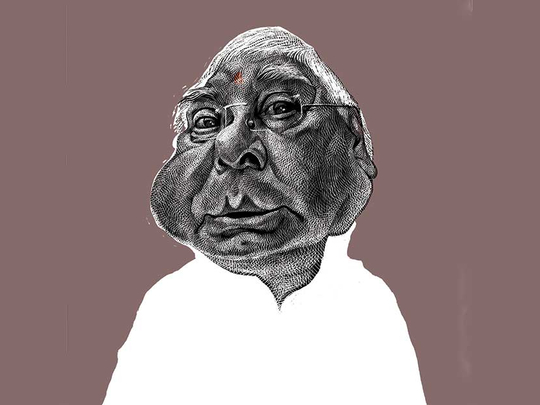
The glee with which urban, middle class India greeted the conviction of Lalu Yadav, a former chief minister of the Indian state of Bihar, in the fodder scam comes as no surprise. In a country where conviction of the rich and the powerful are few, the conviction of a powerful leader like Lalu is cathartic. It sends out the message that there is rule of law, that ‘be you ever so high, the law is always above you’. It reinforces the impression that justice has been done and that for once, a corrupt politician in a land full of corrupt politicians has got his comeuppance.
There are of course good reasons why the corrupt, the rich and the powerful are not convicted more often, though. To start with, this lot seldom dirty their hands, outsourcing the job of breaking laws to others, who oblige for fear or favour. They can also afford the prohibitive legal fees of lawyers and secure better legal protection. They also benefit from the British-era mindset that encourages people and public servants to be deferential to those in power. Finally, the incestuous relationship between power, police and prosecutors allows the corrupt to evade the long arm of the law.
No surprises therefore why no tears are being shed for Lalu — a former union minister who was tipped to be a potential prime minister of India in the mid-1990s. Although he is an old man, now in his late 60s, and who has had a triple bypass surgery, there is little public sympathy for him even as he remains a powerful regional leader credited with forging a formidable alliance between Muslims and Yadavs in Bihar, which had put an end to the series of riots that targeted Muslims before he became the chief minister. His eldest daughter is a member of the Rajya Sabha, the Upper House of the Indian parliament, and two of his sons are legislators in Bihar. If a resourceful man like him is convicted, surely there must have been such irrefutable evidence against him that the court found it impossible to give him the benefit of doubt.
However, that may not necessarily be the case. Indian prosecutors and courts have a dismal record of proving cases related to economic offences and corruption. The recent acquittal of all the accused in the 2G spectrum case is a case in point. Judging by media reports so far, Lalu appears to have been convicted for allowing masterminds of the scam, all of them senior officials in Bihar’s Animal Husbandry Department, to continue in their posts. His office is alleged to have sat over a file on the extension in service of the director of the department, who is accused of submitting forged documents to claim the extension. On the face of it, such circumstantial evidence appears insufficient to prove the former chief minister guilty of criminal conspiracy. It is also telling that while the former chief minister has been found guilty, his principal secretary, the then chief secretary etc have been let off. If elected politicians are to be convicted on such grounds, it would set a new benchmark and if the conviction is upheld by higher courts, few ministers in government will be able to slip through the legal dragnet. While that might serve the blood-lust of the masses, it may not amount to justice.
While more than 60 criminal cases were filed against hundreds of suppliers and officials in the fodder scam, Lalu has been accused in six of them. While the antiquated Criminal Procedure Code (CrPC) may not allow clubbing the cases against the accused, it is still surprising that he should be charged with conspiracy in two of those cases and not in the remaining ones. Sentencing any accused separately for the same offence appears unjust.
One must of course wait to study the wordy order of the court before drawing definite conclusions. The Indian judicial system is long-winded and verbose at the best of times. Agencies like the Central Bureau of Investigation think nothing of filing charge sheets that span over 70,000 pages with annexures. The agency often produces 100 or more prosecution witnesses in a single case and courts are prone to deliver long orders that extend to several hundred pages of flowery but often indecipherable prose. The order convicting Yadav, suggest media reports, extends to 2,400 pages and is still not easily available. Doubts have also been reinforced by the unwarranted observations made by the trial court judge in the open court. The judge has been quoted as saying that the former chief minister may consider playing the ‘Tabla’, a percussion instrument, to keep himself warm in prison. He is also reported to have made the gratuitous comment that he would recommend for the convicted to be lodged in an open prison, where they could rear cattle. Even earlier, he was reported to have asked a defence witness to specify his caste. Such hostility and unreasonable conduct raise doubts over the court’s bias that cannot be dismissed lightly.
A remarkable political journey may have been brought to an abrupt end. But as long as he is around, his political rivals will make a mistake if they think Lalu Yadav’s voice will cease to count.
Uttam Sengupta is the consulting editor of National Herald.










